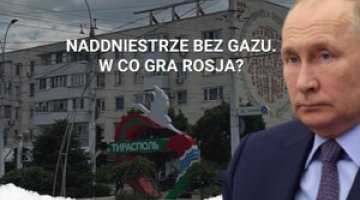Moldova: enhancing military cooperation with the West
Scutul de Foc/Rapid Trident 2023, the annual joint military exercise of American, Romanian and Moldovan forces, in which a total of approximately 500 soldiers took part, ended in Moldova on 22 September. At the same time, on 14–15 September NATO’s Deputy Secretary General Mircea Geoană visited Chişinău and met President Maia Sandu, Prime Minister Dorin Recean, speaker of parliament Igor Grosu, some senior officers of the Moldovan army and other officials. A week earlier, Chişinău hosted General Christopher Cavoli, the commander of the United States European Command (who also serves as the Supreme Allied Commander Europe); in early August, Moldova was visited by representatives of the Armed Services Committee of the US House of Representatives.
Commentary
- Moldova has visibly enhanced its security relations with the West since the pro-Western Action and Solidarity Party (PAS) came to power in July 2021. However, this process accelerated significantly after Russia launched its full-scale invasion of Ukraine. Moldova has requested and received political and material support from the EU and NATO, as well as individual member states of both of these organisations. In June 2022, the Council of the EU decided to support the Moldovan army with a sum of €40 million under the European Peace Facility (EPF). This amount was the equivalent of the full-year budget of the Moldovan Ministry of National Defence for 2021. The funds were allocated for the purchase of non-lethal equipment and services intended to strengthen the logistics and communication capabilities of the Moldovan troops and ensure their cybersecurity. In May 2023, the Council of the EU allocated Moldova another €40 million as part of the EPF for the same purpose. Furthermore, a decision was made to increase support for Moldova during the NATO summit in Madrid in June 2022. The Defence and Related Security Capacity Building (DCB) package established in 2014 has also been amped up. It provides for assistance in such areas as strategic planning, human resources management, the professional development of personnel, the standardisation of training and logistics, planning and civil preparedness in the event of crisis situations, etc.
- Moreover, Chişinău is receiving support in the form of equipment from its Western partners, including on a bilateral basis. An example is the deal struck in October 2022 with Germany regarding the transfer of 19 Piranha IIIH armoured personnel carriers (nine units have been delivered so far, the rest are to be delivered to Moldova by the end of this year), drones and other equipment. In June 2023, Poland donated a large amount of equipment and ammunition to the Moldovan police. The United States regularly supplies the Moldovan army with significant amounts of equipment; a $3 million shipment containing personal protective equipment, reconnaissance drones, light infantry weapons and other equipment arrived in Chişinău this August.
- After Russia invaded Ukraine, Moldova’s government initiated a nationwide debate on the country’s defence capabilities and whether the neutrality enshrined in the constitution since 1994 should be maintained. For years, both Moscow and pro-Russian political parties and groups ruling Moldova have argued that neutrality means de facto giving up on developing the country’s own army, rather than not participating in military alliances. This approach has led to chronic underinvestment in the armed forces. In 2010–21, budget expenditure for this purpose ranged between 0.3 and 0.4% of GDP, which corresponded to approximately $18 million in 2010, $23 million in 2015 and $44.5 million in 2020. As a consequence of the Russian invasion of Ukraine in 2022, Chişinău decided to radically increase its defence spending. In 2023, it rose by 68.2% to around $90 million (around 0.55% of GDP), and in the following years it is to be increased further to 1–2% of GDP.
- The Moldovan government has been able to ramp up its defence spending thanks to Western financial support for its armed forces. Although these funds may only be used to purchase non-lethal equipment, in practice they have released national funds for the acquisition of weapons and ammunition. Moldova is therefore investing in reinforcing its national defence. The most serious investment is a radar system which should be purchased this year (it will probably be the French Ground Master 200 worth approximately €14.5 million) to strengthen the monitoring of Moldova’s airspace. The system will be acquired in response to repeated cases of Russian missiles targeted at Ukraine violating Moldovan airspace.
- The Moldovan government is interested in expanding and enhancing its cooperation with NATO, the EU and individual member states, and is also willing to start discussions on potentially joining the Alliance. Back in January 2023, President Sandu spoke about the possibility of shifting away from neutrality and joining a “larger alliance” in an interview for Politico. In July 2023, in turn, Moldova’s foreign minister Nicu Popescu argued that it was necessary to “intensify and accelerate” cooperation with NATO in order to ensure the country’s security. Nevertheless, a formal renunciation of neutrality seems impossible in the coming years, for both formal reasons (a two-thirds majority of MPs is required to change the constitution) and resistance from the public. The vast majority of Moldovans believe that the country’s neutral status guarantees their security because it does not provoke Russia. Although the number of people supporting Moldova’s accession to NATO has visibly increased since the invasion of Ukraine (in June 2023, it rose to about a third of Moldovans, compared to 20–25% in the years preceding the Russian aggression), more than half of the country’s residents (52–54%) are still opposed to such a move.





